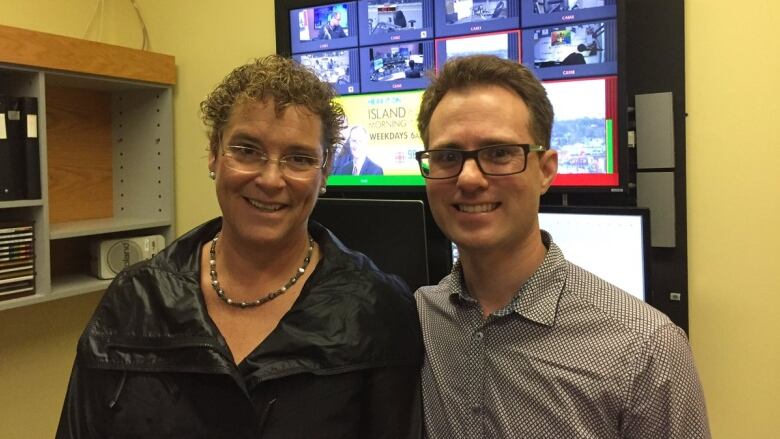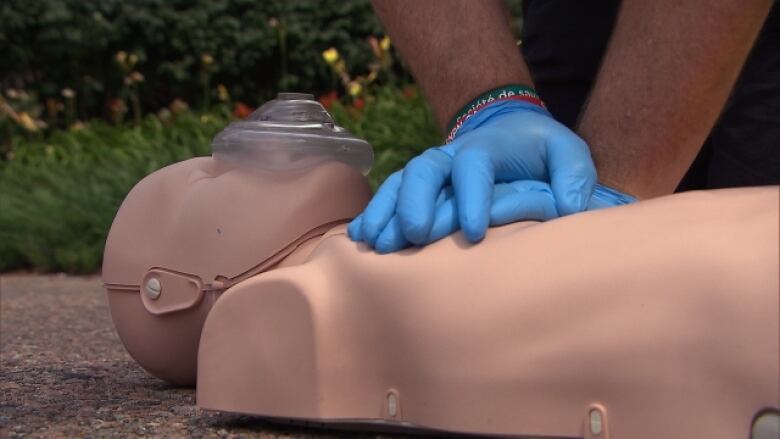CPR study hopes to improve P.E.I. heart attack survival rates
The study hopes to have 911 dispatchers coach bystanders on CPR practices

P.E.I. is hopingto improve survival rates for heart attacks experienced outside of a hospital. Onegoal is to have 911 dispatchers explain how to perform Cardiopulmonary Resuscitation (CPR) to bystanders on the Island within a year.
"Learning CPR doesn't require a course. I mean, it's helpful,"Laurie Morrison, a researcher with the Heart and Stroke Foundation and the University of Toronto, said Thursday on CBC Radio's Island Morning.
Courage and care coaching
Morrison addedbystanders, even those who know CPR, are usually scared when confronted with a situation of someone having a heart attack.
"Really, all it takes is courage and probably that point of care coaching is the most important thing."
The study Canadian Resuscitation Outcomes Consortium (CanROC) is being conducted by the Heart and Stroke Foundation and the Canadian Institutes of Health Research (CIHR). In study areas such as Ottawa, Toronto and British Columbia, the survival rates of people experiencing a heart attack increased significantlywhen someoneperformedCPR.
P.E.I. is one of the new areas being added to the study.
Making it to the hospital

"We really know that bystander CPR is so important. It allows that person to be able to actually make it to the emergency department so that we can try and do our job. And, unfortunately, we see that it just isn't happening, even in public places here in Charlottetown," he said.
More lives saved by bystanders
Another aspect of the study is improving first responder's techniques of using defibrillatorsthrough monitoring software in the device.
Even so, Morrison noted that more lives are saved during a heart attack if bystanders help than waiting for first responders.
"So, I think it's really important to get the message out that standing around and doing nothing during a cardiac arrest is probably the worst possible thing. And, having the courage to get down and do it makes the difference between life and death," Morrison said.
- MORE P.E.I. NEWS |'It means something to me': Island woman finds Jesus-imprinted sea glass
- MORE P.E.I. NEWS |Everyone's watching the P.E.I. plebiscite
with files from Island Morning












_(720p).jpg)


 OFFICIAL HD MUSIC VIDEO.jpg)
.jpg)



























































































